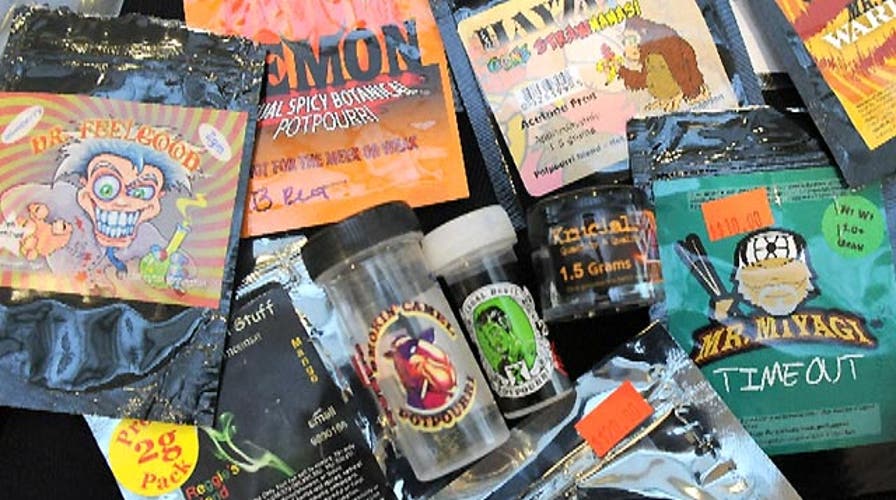DEA arrests more than 100 in crackdown on synthetic drugs
Jonathan Serrie reports from Birmingham, Alabama
Kicking in doors and exploding stun grenades, local, state and federal authorities Wednesday stormed the homes of individuals suspected of trafficking in synthetic designer drugs.
The raids in Alabama and 28 other states were part of Project Synergy, the nation’s largest law enforcement effort to disrupt what investigators see as a serious threat to both public health and national security.
The drugs, still sold at many gas stations and convenience stores, reap huge profits for store owners. Investigators say many of these owners then funnel suspiciously large sums of money to Yemen, Syria, Lebanon and other countries in the Middle East.
“Their drug proceeds here — and I’m not talking thousands of dollars, I’m talking tens of millions of dollars — are being flowed back into these Middle Eastern countries,” said Rusty Payne, a spokesman for the Drug Enforcement Administration.
“That’s a great concern to us. Because we know the history of drug trafficking, terror networks and the financing of terror through drug trafficking.”
Much of Wednesday’s activity targeted a class of drugs called synthetic cannabinoids, made of inert plant material laced with chemicals, often smuggled into the U.S. from China. Commonly referred to as “spice,” many users compare these drugs to marijuana since both are smoked.
However, investigators say constantly changing chemical formulas and inconsistent dosing make synthetic cannabinoids more dangerous and hard to predict.
Synthetic cannabinoids were involved in 11,406 emergency room visits in 2010 and one-third of the patients were ages 12 through 17, according to the Drug Abuse Warning Network.
Law enforcement officials also worry about synthetic cathinones — powdery drugs commonly labeled as “bath salts,” or other household products to avoid police detection.
Landon Letsinger, 17, a soccer player and rising high school senior from Muscle Shoals, Ala., died last year after another teen persuaded him to try a synthetic cathinone purporting to emulate LSD.
“Kids just need to know, if it can happen to Landon, it can happen to them,” said Juli Letsinger, Landon’s mother. “It wasn’t a kid that abused drugs. And you have no idea what you’re taking. You have no idea what’s in it. And that one choice can take your life.”
Long before his death, Landon had registered as an organ donor. His parents say they take comfort in knowing their son’s heart continues to beat, now inside a 12-year-old boy. They also hope to save more young lives by sharing Landon’s story with other parents.
“I wish I had warned him more,” said Chris Letsinger, Landon’s father. “I think we did check up on him a lot. It’s just the warning part, to just have a frank conversation about the dangers of all this new stuff that’s here.”


